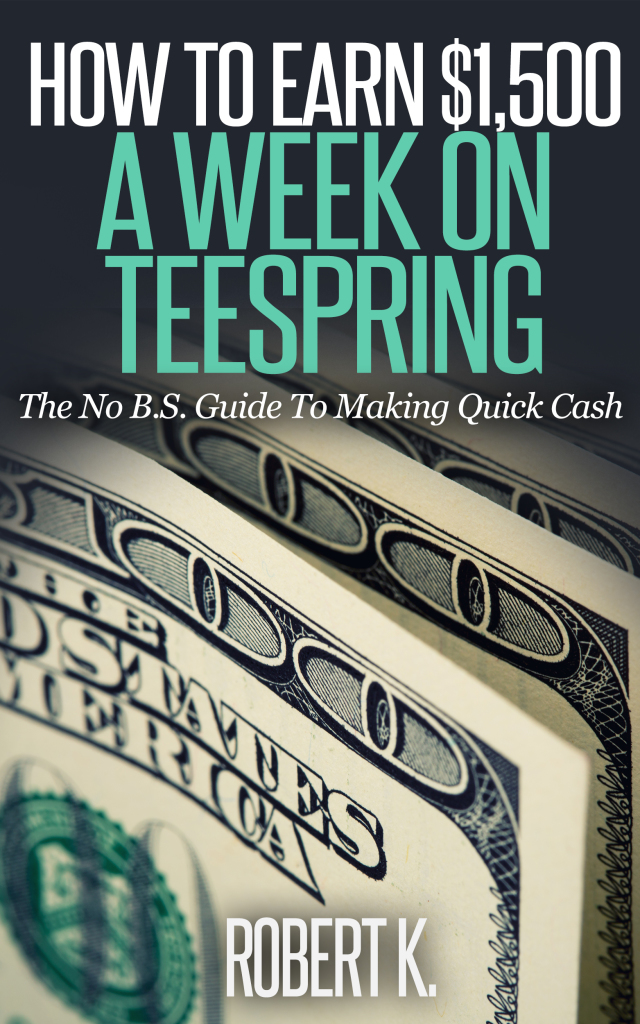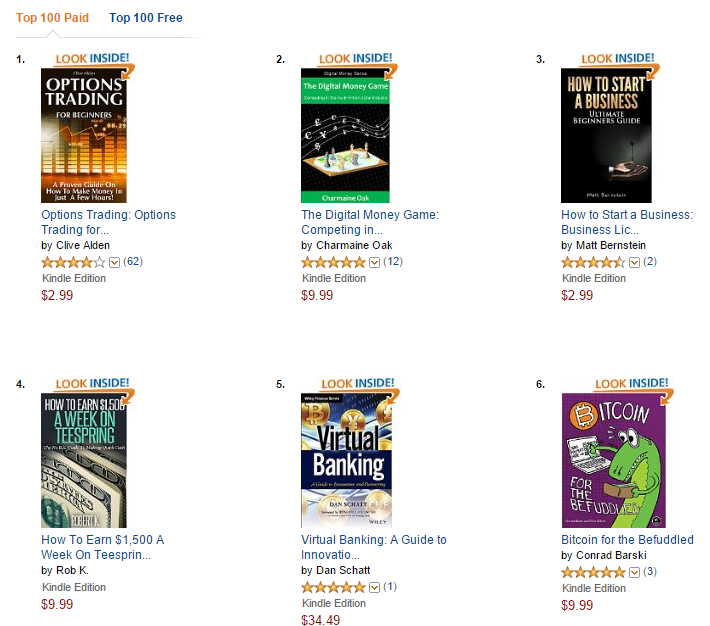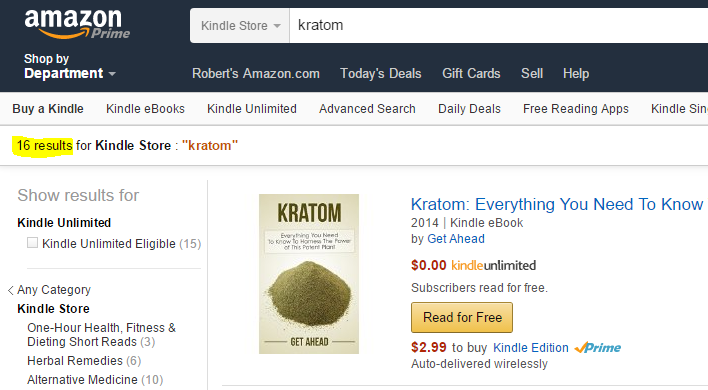 Over the past two years I’ve built up a series of profitable business ventures. Each one has been relatively easy and I’ve reached the point where I’m starting to consistently create bestselling products and services.
Over the past two years I’ve built up a series of profitable business ventures. Each one has been relatively easy and I’ve reached the point where I’m starting to consistently create bestselling products and services.
My secret? I follow the sage advice of Charlie Munger: “Take a simple idea and take it seriously.”
I don’t do “one weird tricks” or experiment with ventures that are super risky. Instead I take very basic ideas and build them into multiple sources of income.
Here are five ways I’ve turned simple concepts into profitable businesses:
1. Write an eBook while learning a new skill
A few months ago I read a really stupid article about summer jobs for college students. The author gave terrible advice like “become a day trader” and “move to Saudi Arabia to teach English.” Every piece of advice in this article was terrible.
Being a curious guy, I decided to look for an easy business opportunity that anyone could do. The venue that really caught my eye was T-shirt design. There’s a long list of billionaire fashion moguls (Ralph Lauren, Giorgio Armani, Sara Blakely) and everyone has to wear clothes on a day-to-day basis.
Not knowing much about the T-shirt industry, I started off with the first lead I could find. A 500 word forum post got me interested in designing shirts and selling them through Teespring. I quickly searched for more information and read every article and book I could find, taking notes all the while.
After a weekend of research and uploading one T-shirt design, I took all my notes and rewrote them into a 25 page eBook. I then uploaded the book onto Amazon and sold it for $9.99. It sold quite well and even earned positive reviews.

At this point you may be wondering why I wrote an eBook about Teespring if I hadn’t sold anything yet. Easy. I’d read dozens of high-quality books (I have Kindle Unlimited and can borrow eBooks for free) and articles on the subject. My book contained content that you would have had to visit 15 different websites for. And I had added my own insights and previous business experience, helping to flesh the title out and make it engaging. Finally, I designed a shirt and uploaded it to Teespring, giving me hands-on knowledge about the site and how it worked.
I also made it clear that the reader was getting information from a wide variety of sources, even going so far as to source my claims. On top of this, I wrote in a fun but informative style. The reader was engaged while they learned. Something most self-published books never manage to do. Putting my money where my mouth is, here’s an actual excerpt:
By now you’re probably thinking, ‘Great stories Rob. But how do I actually use the site to make money?’
The answer is probably a little different than you might imagine.
We use Instagram to market our product. And our product is T-shirts.
Why T-shirts?
Because they sell and we can make them for free. That’s right, I’m about to show you how to design an actual T-shirt free of charge. There’s no silly gimmick or dubious trick. Making and selling T-shirts is actually something that anyone can do. And it can cost you nothing thanks to a special website.
Now, before we get any further, I want to clarify a few things. This isn’t some con where I get you to sign up for a service that pays me a commission. Or where I up-sell (a fancy marketing term for getting you to spend more than you’d initially wanted) to another product.
Nope, the service I’m about to tell you about is free of charge and in no way affiliated with me. I get nothing for pointing you to it. In fact, if you don’t like the website I’m about to show you, there are several alternatives you can pick from instead. I’ll even list them out at the end of this book.
But for now we’re going to focus on a website called Teespring. If you’re unfamiliar with the site, you’re in luck. I’ve got a complete analysis on everything you need to know…
By reading, doing research, and uploading my own T-shirt design I had gained “relative experience.” I knew more than the average person when it came to this topic.
If you’re seriously learning a new skill you’ll develop “relative experience.” You won’t be an actual expert yet, but you will know more than the common man. It would be easy to make a snarky comment like “In the land of the blind the one-eyed man is king,” but this type of experience can actually be useful. A lot of people don’t have the time or patience to read a 300 page book. They want a concise guide of entry-level information to help them get started right away.
There are obviously exceptions to this rule (medical advice, financial suggestions, etc…) but simple information can be researched and rewritten for profit. Especially if there is a very low difficulty curve to mastering the subject.
Here are some examples of fields where “relative experience” is acceptable:
- Basic home repair – Have you painted some furniture, hung drywall, or grouted a floor? Write a book.
- School – Straight “A” student? Write a book. Bonus points if you narrow the subject down to getting good grades in your field of study (i.e. The History Major’s Guide To Acing Every Test).
- Pet care – Do you have a dog or cat that you teach tricks to? Do they have a special diet? Is there something unique you do with them? Write a book.
- Social media/blogging – The average Twitter user has 208 followers if you have more than that write a book. The average blog earns $3.50 per day. If your site makes more write a book.
- Failure – You don’t have to be good at something to give advice on it. If you’re about to learn from a mistake, you can give advice on how to avoid similar mishaps. I wrote a short story that got rejected from a publisher. Taking the rejection notice and turning it into How Not To Sell A Story would be easy and profitable.
If you’re still short on ideas, or nervous about writing your own book, I’d suggest picking up a copy of How to Write & Sell Simple Information for Fun and Profit by Bob Bly (Amazon). This is an awesome book and I’ve used it to help create all of my information products.
All of these probably sound like generic or simplistic ideas. But they’re supposed to. Remember, this is the first step in your online business. A quality product that can be tweaked later is more important than “building authority” for years on end so that you can eventually sell someone a $10 product.
Also, you may have noticed that I didn’t mention any products in the “self-improvement,” “weightlifting,” or “picking up girls niche.” That’s intentional too. These topics generally require a lot of expertise (such as living a life others would envy or being a professional athlete). I’d also advise against writing anything politically incorrect or offensive. You’ll see why in a few paragraphs.
Lastly, if you’re looking to make money, don’t slave away in some esoteric field. I recently had a guy email me his get-rich-quick scheme of writing “neomasculine morality plays.” I’m sure he is making tens of dollars off his endeavor.
2. Build a niche website for your book
I’m actually guilty of not doing this very often with my own books. However, I always set up a webpage for my clients who are selling books. Having a website serves two purposes: It makes you look a little more professional, and it allows you to earn extra money. Focusing on your specific niche also teaches you the crucial skills of web design and copywriting.
Unlike a broad topic site where you might talk about your trip o the grocery store or love of annoying neighbor, a niche site is dialed in on one topic. The site isn’t about you, it’s about convincing a potential customer that they need your book.
While you don’t need to have a website to sell books, I’ve proven that time and time again with my own titles, it does help. It’s especially important if you want to develop some killer sales skills. A good copywriter can take a simple product (like your eBook) and sell millions of units.
If you plan on following this 5-step program, I suggest investing in either CopyHour (no affiliate). If you follow along and do the practice lessons, you’ll develop a million-dollar skill set within weeks. A good alternative, that’s about one-tenth the price, is The Adweek Copywriting Handbook (Amazon).
Before you even set up your site, I recommend writing out all the content you plan on posting. This way the whole website will have a consistent tone and you won’t have any dud content that drives readers away.
3. Use your book and site to get freelance work
Earlier I mentioned that you should write a book that’s appropriate for everyone (i.e. don’t author How To Cheat On Your Taxes). This is because you’re going to be showing your product to other business owners so that they hire you for work.
I’ve discussed this before, but it’s worth mentioning again. Companies will pay handsomely for someone who can design a website, write a newsletter, or pen an article. If you’ve written a book, even a short one, people are more likely to take you seriously.
A book and a website are always good things to have in your portfolio. If you have a title that sells well or a webpage that converts readers into buyers, someone will pay you to help with their own projects. It’s happened to me on numerous occasions. On top of this, it becomes incredibly easy to sell whatever service you’ve written the book on. People are more likely to buy a product you recommend (or create) if they know you’ve authored a book that’s related to it.
4. Leverage your experience into an “expert” position
Once you start making money others will pay you to hear “the secret.” Once or twice a week I have someone pay me for a short consultation where I teach them how to make an eBook, or how to market a product.
Most consultations, given by anyone in any field, are pretty basic. You usually end up paying for the same information that could have been gained from a $10 book. The Adweek Copywriting Handbook, for example, is a $20 paperback version of a $3,000 weekend consultation course. Same goes for many college classes where students pay thousands of dollars to read books they could have gotten for free at the library.
However, people who want consultations usually want them because they save time and offer a comparatively high return on investment. $100 for a one hour consultation is still cheaper than spending 10 hours reading how-to guides and experimenting through trial-and-error.
Consulting is easy to do because it rarely requires you to wrack your brain or learn a new skill. And clients enjoy it because it saves them a lot of time while providing actionable advice that’s specific to their situation.
5. Rewrite your original book using newly gained insights
When I started out in my quest to sell T-shirt designs, I had planned on direct marketing through Tesspring. As it turned out, I found a much faster (and easier) way to sell shirts. And it didn’t require a middle man.
Right now I’m in the process of selling one of my shirt designs to a major clothing company. I’ve also sold off other designs to smaller businesses. My current business model looks nothing like the one I had started out with.
Because of this, I decided to sit down and write a new book. One containing everything that I had learned since starting out. Authored with my own real-life experiences, enabling the reader to see exactly how I built a business.
Once you’ve mastered a craft (or at least done well in a particular field) your information will be completely unique and original. It also ends up selling itself since buyers know that you’ve actually worked your way up through the trenches.
Sample ideas
Here are a few simple ideas that I want you to steal from me. All of them are easy to monetize and could easily be turned into decent side-businesses:
Good Looking Loser has a six-figure Kratom business. There are a grand total of 16 eBooks about Kratom on Amazon. Buy some of his product, write a book about it, sign up for his affiliate program, and then start a little niche website.

Back in February I bought a box of old board games for $20. I then found out that each game was selling for roughly $50 to $100 on eBay. Go spend a Saturday finding cheap items to resell. Write a book and then start a blog on that topic.
Your local library has a mountain of books on marketing and sales. Check out three of them and read each one cover to cover. Take notes all the while. Open a Fiverr account and apply your new sales skills to get some clients. Once you earn a certain amount (set a milestone like $100 or $250) write a book. Sales Secrets To Making An Extra $500 A Month: The No B.S. Guide To Effortlessly Connect With Clients. There, I’ve even given you a book title to use.
Word of warning
Making money off of eBooks is easy. However, you have to be willing to do some work. Copying and pasting content from Google will not help you to make money. Plagiarizing will get you booted off Amazon. And ripping off another author is a good way to sabotage yourself and make a powerful enemy (many successful self-published authors are friends and they do not take kindly to others stealing their ideas).
To make money off of eBooks you need the following:
- Passion (or at least some interest) in the subject you write about
- Original insights or a unique voice
- “Relative experience” (the more you’ve done something the better)
- Basic salesmanship (you must convince the customer to buy from you)
All of these can be developed rather easily. If you’re being original and writing about something that interests you the learning curve will be virtually non-existent.
Conclusion
Writing eBooks is an easy way to earn money while learning a new skill. It’s also a very simple way to build authority in a particular field.
With that said, authoring books is not some magic get-rich-quick scheme. No one has to buy your product. If you think you can make money cranking out poorly made copycat books, you might as well quit now.
However, if you have a passion for learning and sharing information, writing how-to guides can actually be quite lucrative. It allows you to easily establish a product, and opens new doors for future business opportunities. eBooks cost virtually nothing to create and they can be written in a minimal amount of time. If you want to experiment with business or increase your credibility on a subject, this is a great place to start.